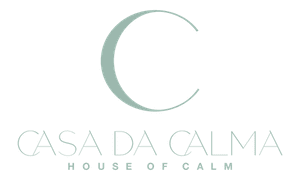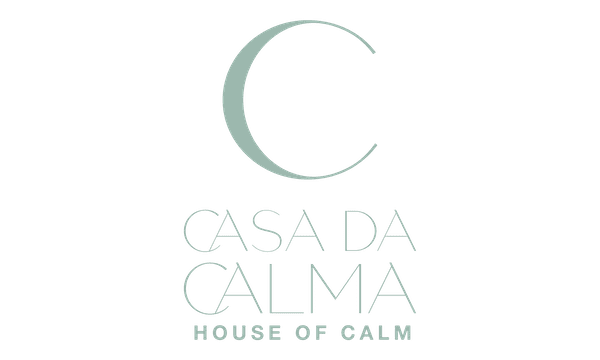
Some hymns help break up the rigid structures in our psyche. For an unhealthy ego will be rigid, tightly held and unyielding.
The Santo Daime hymns are at the heart of a Santo Daime work. They are the divine gift that carries a healing current, allowing participants to receive the gift of healing.
The hymns offer several way to help us in developing “firmeza no pensamento,” or firmness in the mind. One way is by repeating each stanza. This requires our minds to pay attention, otherwise we will lose track of where we are in the hymn. Some hymns can be particularly challenging this way. (Hymn #154 Ai Meu Deus, or Oh My God, in Padrinho Sebastião’s hinario called O Justiceiro comes to mind.) There is also a lot of variety in terms of which lines are repeated and in what way. Again, this calls for some mental focus on our part.
For non-Portuguese speaking people, there is obviously an added hurdle of singing in a language we don’t know. But the call-and-repeat nature of the stanzas actually gives us an opportunity to hear the correct pronunciation and, if the music is not too fast, note the meaning of the phrases.
Another bit of good news is that the words used in the hymns are quite repetitious. After a fairly short period of time, the words start to become familiar, along with their pronunciation. Some refer to this as Portuguese-ease. You may not know what you are singing, but you can start to sing along. And in doing so, we help carry the healing current during each work.
A helpful website to visit is www.nossairmandade.com. “Nossa irmandade” means “our brothers and sisters” in English. You will find words and music for all the most well-known hinários. And there are also some very helpful tips about how to pronounce Portuguese words, and for Portuguese beginners, there is Portuguese for Daimistas: The Specialist Fast-Track Guide.
The hymns help us heal
Some hinários, or hymn books, offer a unique variety in the cadence of the lines. This has the effect of helping break up the rigid structures in our psyche. For an unhealthy ego will be rigid, tightly held and unyielding, whereas a healthy ego will be fluid, flexible, strong and resilient.
Many of Madrinha Baixinha’s hymns are particularly good at this. This makes her hinários more difficult to learn, but they are filled with light, so are also tremendously joyful to sing.
Madrinha Baixinha has essentially four hinarios. The first two are Guia Mestre, or Hinário of Baixinha and her Master Guide Cabocla Tupinimbá and Hinário da Fé, or Hinário of Faith. Follow the links to listen to recordings on Soundcloud of these hinários being sung in live works. A third short hinario of just five hymns called Estrela D’Água, or Star of the Water, was received before she died in 2015.
Baixinha and her master guide Caboclo Tupinambá created a fourth hinario called Mensageiros da Cura, or Messengers of Healing. It is a selection of hymns from her first two hinarios plus a selection of hymns by others. Listen to the exceptionally beautiful studio recording of Mensageiros da Cura on Soundcloud.
Hymns are co-creations
Because hymns are channeled, they are a co-creation between the being offering the hymn and the person receiving the hymn. So if a person holds beliefs that are not aligned with truth, those untruthful concepts can show up in the hymns. This offers an opportunity for each Daimista to notice their own connection to source, and to discern whether this may be the case for a particular passage in a hymn.
In reality, all of life on Earth is colored by the presence of Lower Self and the lack of perfection it causes. The work of being human, then, is to use our free will to transform the distortions of our Lower Self and return ourselves to our original free-flowing divine nature. To do this, we must uncover the untruth that is hidden in our Lower Self. Because Lower Self is always built on a foundation of untruth.
So the presence of any errors in the hymns is understandable and acceptable. Said another way, if hymns could only be given to people with no inner errors, we would have no hymns.
It’s much like the errors that have crept into the Bible due to human misunderstandings and faulty translations. Nonetheless, according to the Pathwork Guide, even with these unavoidable errors, the Bible is the most unique document on Earth.
In fact, according to the Pathwork Guide, more effort went into creating the Bible than any other document we have in our world. That is why the Bible has meanings on so many levels, the deepest of which we can only access by connecting more and more deeply with our own Higher Self.
So whether the words offer perfection or not is not the point. We can all benefit greatly from the healing current we create by singing Daime hymns, some of which are more powerful than others.
Times of concentration
What’s most important is that we allow the Daime to help us see the parts of ourselves we are blind to. For those hidden obstacles are the source of our disharmonies, pain and suffering in life. In addition to the time spent singing, there may be times of silence, or concentration, during works. This is an opportunity to see the inner obstacles that are preventing our mind from being still and allowing us to remain fully present.
In her hymn #64 of Guia Mestre, Baixinha says:
| Concentration | Concentração |
| The concentration You don’t want to do |
A concentração Você não quer fazer |
| Because it shows you What you don’t want to see |
Porque ela te mostra O que você não quer ver |
| See what you are doing Running away from the truth |
Veja o que está fazendo Correndo da verdade |
Hinários sung at Casa da Calma
| OWNER OF HINÁRIO | TITLE OF HINÁRIO |
| Mestre Irineu | O cruzeiro |
| Padrinho Sebastião | O justiceiro (#71-156; Volume Two) |
| Padrinho Sebastião | Nova Jerusalem |
| Madrinha Rita | Lua branca |
| Padrinho Alfredo | O cruzeirinho (#97-160) |
| Padrinho Alfredo | Nova era |
| Padrinho Alfredo | Nova dimensão |
| Selection by Pd Alfredo | St. Michael work |
| Padrinho Valdete | O livrinho do apocalipse |
| Madrinha Baixinha | Guia Mestre |
| Madrinha Baixinha | Hinário da fé |
| Madrinha Baixinha | Mensageiros da cura |
| Madrinha Vera Fróes | Hinário Vera Fróes |
| Padrinho Luiz Mendes | Os chamados: trabalho de cura |
| Padrinho Luiz Mendes | Nove horizonte |
| Padrinho Lúcio Mortimer | Instrução |
| Padrinho José Sulla | Pele’s Garden |
| Madrinha Karina Sulla | Rosas do mar |
| Padrinho Manoel Corrente | Caboclo guerreiro |
| Madrinha Sônia Palhares | Firmado na luz |
| Padrinho Alex Polari | Nova anunciação (Seleção) |
| Companheiro Antônio Gomes | O amor divino |
| Companheiro Germano Guilherme | Sois baliza |
| Companheiro Maria Damião | O mensageiro |
| Companheiro João Pereira | Seis de janeiro |
| João Pedro | O menino Jesus |
| José Rosa | A estrela |
| Padrinho Leo Artese | Curandeiro |
| Chico Corrente | O signo do teu estudo |
Printed hinarios can be purchased from the following sources:
Divine Rose Store (recommended)
Church of the Holy Light of the Queen books
For those who regularly attend Santo Daime works, it is recommended to buy a printed copy of the hinários being sung. They provide both the English and Portuguese versions of the hymns, and allow you to mark each hymn to aid in singing them correctly. We are happy to share our suggestions for marking a hinário with you, to help you find the way that works best for you.
About Casa da Calma: What to expect • Visitor information • Visitor forms • How to get here • Contact us
About Santo Daime: How Santo Daime heals • Santo Daime hymns • Santo Daime and addictions • Santo Daime and Pathwork
About Mediumship: Part 1: The purpose of mediumship • Part 2: Influence between the Spirit World and humanity • Part 3: General facts about mediumship • Part 4: Basic attitudes, laws and protection • Part 5: Practices, pitfalls and confusions, and limits • Part 6: Mediumship in Santo Daime


